Everyone says your recipe is the best, and you should market it. But you have no idea how to start a food business. I will tell you what it takes to create an artisan food business.
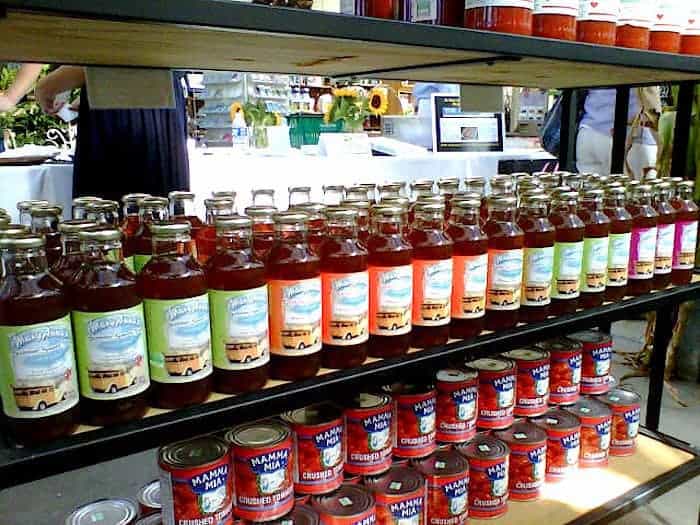
From Tea Enthusiast To Professional Tea Maker
Disappointed with the plethora of artificially created bottled teas, I came upon the idea of making real bottled iced tea. Natural bottled tea is freshly brewed from premium tea leaves and bottled immediately afterward.
After a year of research and development, I created MaryAnna’s Tea, placing my first bottled tea on retail shelves. The more I researched tea, the more I discovered natural tea, and I loved it. I started as a tea enthusiast, probably like many of you, drinking supermarket-grade tea from tea bags. Oh, what I didn’t know!
What do I mean by "real tea"?
Discovering Specialty Tea expanded my love of tea. I had no idea what I was missing until I tried tea in the form of high-grade loose leaf tea. It’s a whole new world of tea!
I started my tea business with this discovery – a personal venture where I challenged myself to make the best-bottled tea on the market.

Shades of Earl Grey - $19.95
from: Firebelly Teas Inc.
MaryAnna’s Tea in my opinion is the best bottled iced tea I’ve ever had. There is no chemical aftertaste and you get the bonus health benefits of drinking real tea."
Deborah Smith, The Jersey Shore Cookbook
In 2012 my first flavor, Summer Sweet Tea, came in First Place at the North American Tea Championships. In 2013 & 2014, my Tea & Lemonade came in third place at the North American Tea Championships.
Professional tea masters and chefs judge the tea championships. Upon entering, I was up against many well-known national bottled tea brands (you know who they are) and placed my bottled tea ahead of them!
Establish an Artisan Food Niche from a Need
One day, I grabbed a bottled tea in a convenience store and thought it would be delicious. The minute I tasted it, I was disappointed. The chemical aftertaste was horrible, and it tasted nothing like naturally brewed tea.
My niche was tea. Beyond that, I focused on bottled tea, also known as ready-to-drink tea (RTD). Although 80 percent of Americans drink tea, most is iced and bottled tea. I also knew the majority of bottled teas on the market were not real brewed tea.
Most commercially produced bottled teas are made by taking shortcuts to match the flavor of natural tea, which usually includes artificial ingredients that have scientific names no one can pronounce. There is nothing healthy about this process.
I knew I could make better tea. I also knew people wanted a better product, a naturally brewed tea without artificial ingredients. Why wasn't anyone doing this?
I soon found out why. It costs more to make a product with real food than fake food. But I decided to start a food business because I know our bodies thrive with real food and authentic beverage products.
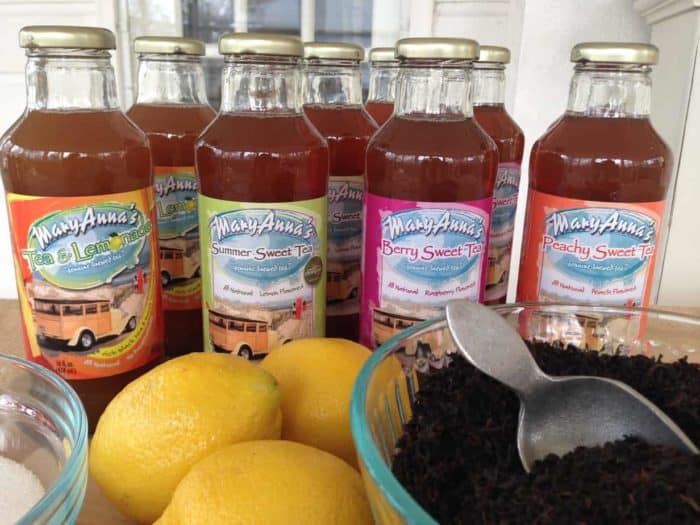
Finding a Test Lab to Start a Food Business
I’m a registered nurse by profession. I had plenty of nutritional knowledge but no idea how to start a food business. In hindsight, maybe that was a good thing. Knowing now how competitive the beverage world is, I may have never started.
The first thing I did was find out if my exact recipe could be bottled and shelf-stable without using artificial flavorings or preservatives. Cornell University has a Food Entrepreneurship program. I sent them samples of my recipe in glass jars and the exact gram measurements of all my ingredients.
Cornell tested my bottled tea and returned a formulation or scheduled process of my recipe to produce in a commercial setting. This included everything required to make it a safe and shelf-stable product, including the type of packaging, temperature controls, and pH parameters.
Research and Development for Artisan Food
I took courses on Food Entrepreneurship at the Rutgers Food Innovation Center in Bridgeton. They are very knowledgeable, and I recommend them to anyone who wants to start a food business.
After that, I needed a place to test run my product. At the time, the facility in Bridgeton was still in the building phase, so they referred me to the Center for Advanced Food Technology in Piscataway for production.
Preserving the natural tea flavor, nutrients, and antioxidants inherent in freshly brewed tea was essential. The more food or beverages are processed, the more nutrients are lost. My goal was to create 100 percent natural, non-GMO bottled tea.
I spent the next six months researching and developing a shelf-stable product. I painstakingly sourced premium commercial ingredients. Glass bottles preserve food better and longer without the unwanted side effects of chemicals leaching into the product. Glass is 100 percent inert and endlessly recyclable.
In June 2008, the Center for Advanced Food Technology produced my first run of 1,000 bottles of tea. I quickly sold out to several local specialty stores on the Jersey Shore.
I had officially started a food business. Now I needed a co-packer.
Finding a Co-packer
Co-packers or contract packagers produce most food products in this country. Finding a small-scale beverage co-packer is difficult, especially in the beverage business. You can also produce on a smaller scale in a commercial kitchen.
The Center for Advanced Food Technology helped me find a reputable co-packer to produce my bottled tea. They had already audited the facility, so I knew it complies with good manufacturing processes.
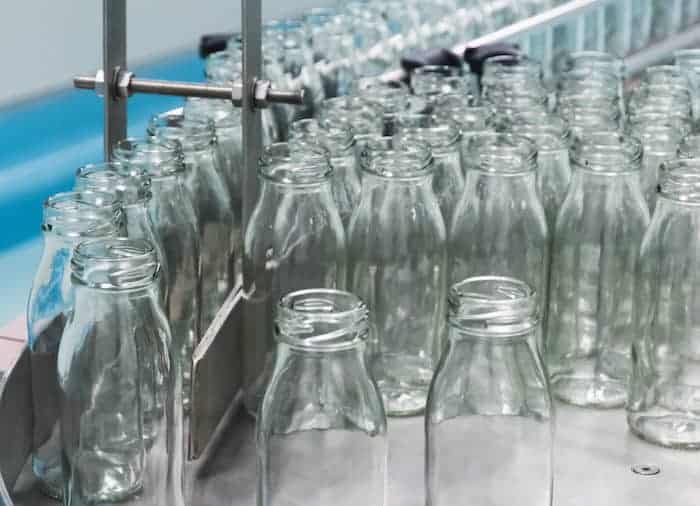
Understanding FDA Regulations
Before starting a food business, you must know that each food product requires different FDA regulations. Creating a product with proper labeling and packaging and safe production guidelines is imperative.
The FDA is particular about labeling. Most stores want your labels to be FDA-compliant and will not carry your product if it is not. Nutrition labels are not necessary when starting, but consumers look for them.
The Center for Advanced Food Technology ensured all my packaging and labels were 100 percent compliant with FDA labeling and nutrition regulations.
Recipe Protection
Having a non-disclosure agreement (NDA) in place is also essential to protect your recipe since you cannot copyright or patent a recipe. Only a recipe's manufacturing processes or literary expressions, like a cookbook, can be protected.
Many people are exposed to your recipe during the manufacturing process. Hence, a simple NDA reduces the risk of anyone sharing your information to ensure no one else replicates your formula.
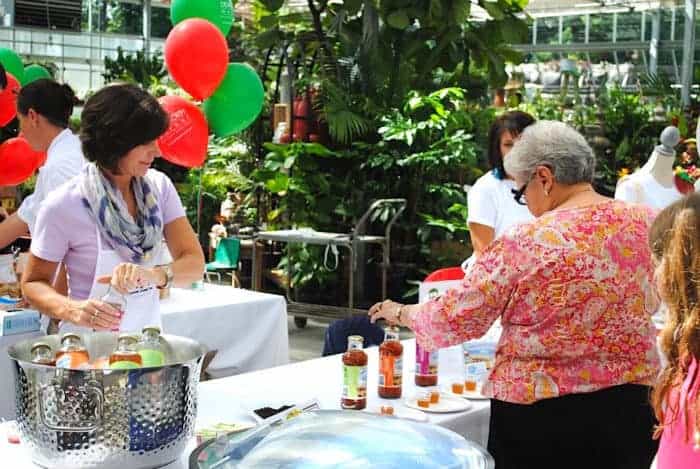
Marketing and Distributing Artisan Food
Distribution and marketing are probably the most crucial parts of the entire process for starting a food business. How are you going to sell your product?
In my case, I went to the owners or buyers of each store that I thought was a good fit. They sampled my products if they liked my bottled tea and didn't have a competing beverage contract they ordered.
The big food and beverage companies will always out price you and over distribute. You can't compete against them so don't even try. Instead, focus on providing a better product for the consumer and better service for the retailer.
Distribution is critical. I began small in my local hometown. I did a lot of tastings in stores, farmers' markets, and local fairs to spread the word. Now I have a very loyal local following throughout my home state. I self-distribute, so my products remain local.
Of course, you also want to get as much media exposure as possible. Social media is an excellent way to do this. So are local media outlets, bloggers, and magazines. Once the word gets out about your product, media outlets may start coming to you for stories.
I've received a lot of press this way. New Jersey Monthly did an excellent write-up a few years ago called Shelf Life about food entrepreneurs in the state, including MaryAnna's Tea.
I produce my artisan teas in small batches by microbrewing from specialty tea leaves with a co-packer.
- How To Start A Tea Busienss And Profitable Online Store
- 10 Best Online Tea Shops
- Foodies Ultimate Guide to Tea Tasting Notes
- How To Start A Profitable Blog
Resources for Artisans Who Want to Start a Food Business
Like I am passionate about tea, many food artisans are passionate about their products too. Our Western world can be too complicated at times. Especially in our beverage world, continues to become saturated with overly complex and artificially created beverages.
I know consumers crave simple and authentic food products. I hear this all the time. Simplicity does not mean the loss of quality, just the opposite.
Here is a list of some of the many websites, books, and facilities available to help you on your way to starting a food business. Of course, there's much more to it than I've talked about here, but this will help start your artisan food dreams.
- The Specialty Food Association
- Small Food Biz
- From Kitchen to Market by Stephen Hall
- Cornell Food Venture Center
- Center For Advanced Food Technology
- Rutgers Food Innovation Center
- Culinary Incubators
- Specialty Foods Co-packers Directory
- Specialty Foods Co-Packers Useful Information
- How to Make a Profit Creating & Selling Your Own Specialty Food Products
It’s a Hard Road To Start A Food Business
There’s no sleeping on trying to build a brand. You wonder if people will like it as much as you and your friends and family do.
I found out how completely saturated the beverage market is. But I also found out people want authentic food and high-quality products.
Remember that the margins are minimal with processed food instead of perfume. Food production and distribution are costly.
You have to ensure you have your cost of goods under control and your final cost to consumers reasonable enough for them to buy but high sufficient for you to make a profit.
I’ve learned a great deal about commercial food, the beverage business, and specialty tea with running my tea business. I started this blog, Life Is Better With Tea, to share what I’ve learned about tea. Throughout this journey, I’ve continued to explore the related issues of nutrition and health.
I've also put together eBooks for you to expand your tea knowledge further.
How To Buy Wholesale Tea and Herbs from The Best Bulk Tea Suppliers
Anyone can start a tea business — I show you how in my new eBook!
The following eBook is my experience with bulk tea suppliers. It provides invaluable information to save you time and money sourcing the very best tea.
Click the button below to purchase today!
Buy HereThank you to all who have supported me on this tea journey and helped make my bottled tea successful.



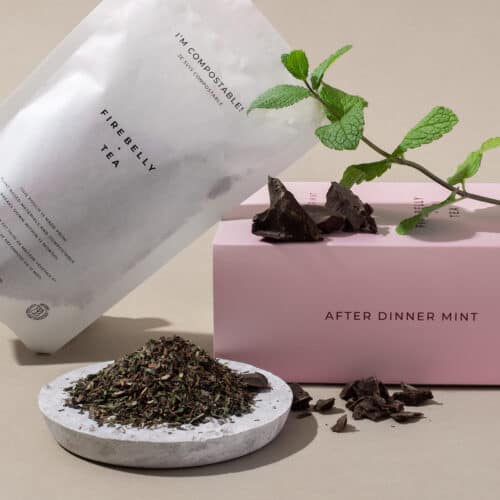
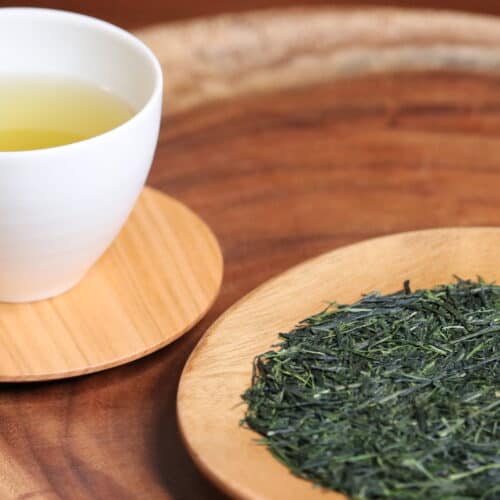
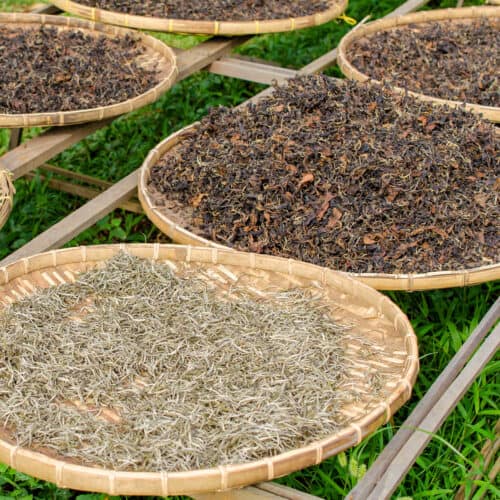
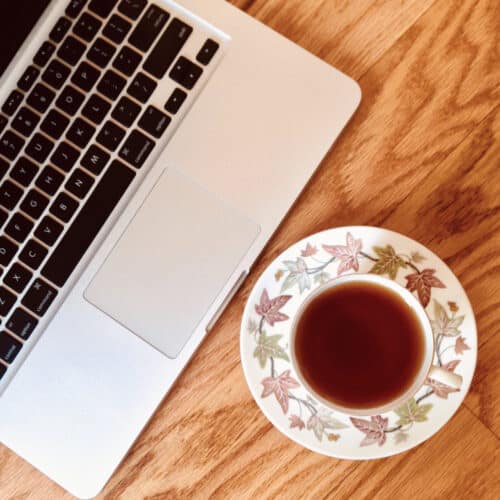
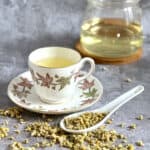
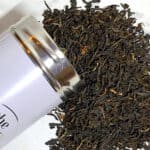
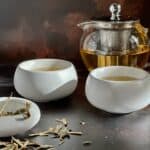
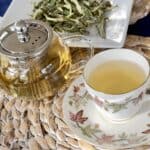


Disha
Clars
Hi Ms. Anne! I was very inspired by your story. I wanted to start my own tea business too. Our struggle is that how can we prolong the shelf life of our homemade bottled tea?
Mary Ann Rollano
Hi Clars, I strongly recommend you reach out to your local university that has an agricultural or food science department. They will likely have resources for you. The prolonging shelf life of bottled beverages all depends on the formulation (recipe) and bottling process. Is it hot-filled, cold-filled, or retort sterilized? Will you be using preservatives or natural foods? If you don't have anyone local reach out to the Cornell Food Entrepreneurship program.
Frank G Traub
Hi Mary Ann,
Thank you for sharing your story. l do not know how l only just stumbled across this, because it has been really informative. l too am a tea enthusiast and have been working on a personal recipe for a number of years now; and l believe that l am finally ready to have the world sample my tea. So l am wondering how to get in touch with you personally because reading your story has just made me realize how so far behind l am. Notwithstanding, l believe in what l do and like you l am sad that a lot of people would rather put profit over health. My recipe is 100% natural because l believe that in times like these people are looking for an opportunity to live right, and that includes what they eat and drink. Thank you once again and l wish you all the best.
Mary Ann Rollano
Hi Frank,
Thank you for taking the time to comment. I'm glad my experience was helpful to you. That's the benefit of sharing our stories - to help and learn from one another. I agree most people prefer real food and beverages. You can contact me anytime via my email: maryann@lifeisbetterwithtea.com This goes directly to me.
Jeanne Perry
Thank you so much for the info. I too am trying to start up a health tea made w/ingredients from the middle eat. Our cost for the distiller is very high, mostly to bottle/label it. We are still trying to find a cheaper way, we have people and markets waiting. So we will keep trying. Again, Thank you...Jeanne
Mary Ann Rollano
The packaging of RTD tea is the highest cost you will incur. The ingredients, of course, are the least.
Ethelbert Harrison
Greetings to you... You are an angel!! THANK YOU VERY MUCH, for the so needed vital and crucial information that you have given all for free. Your business concept is so much of what I am trying to do and for me, trying to obtain such information was a totally daunting task. From my research experiences, this type of information would cost a minimum of $500.00....
I live in the Bahamas and here we use a variety of teas that grow wild in our forest, so for me the materials are free, the only cost regarding raw materials would be, for collecting them. I do however, want to use Monk fruit as a sweetener so I can truly offer a sugar free product. Glass bottles, bottling and monk fruit would be my biggest cost.
I have never replied to a blog before, this being my first time. The way you present the information could not be better and I am truly only doing so to say thank you very much for your information which is a great help for me..
Mary Ann Rollano
Thank you so much for your enthusiastic comment. I'm so glad my post is helping you. That was the whole idea for writing it.
Allison Fite
Thank you for this article. It is so helpful and more practical than any other article I’ve found. Cheers!
Mary Ann Rollano
Thank you.
Sam
Hello Ms. Ann,
Thank you very much for sharing all this valuable information. It truly helps. I am a stay home mom who would like to start a bottled herbal tea business. My funds are really limited and I am thinking of starting buy distributing myself to corner stores.
Based on your experience, how much would you say is needed to start my business?
Thank you for your reply.
Mary Ann Rollano
It's hard to say how much it will cost you. You need to start pricing commercial ingredients and sourcing commercial ingredients, labels, bottles, caps, storage, packaging, and manufacturing. Who will co-pack it for you? How much will that cost? What are the minimum quantities? There are many things to consider and without costing out each item you won't know how much it will cost you.
I assume you have recipes. Who will develop your formulations for you so that you have a safe product to sell in a commercial setting? How much will the charge you for that?
Sorry I couldn't be more specific. There are a lot of cost factors to consider. Once you develop the product and produce the product how will you get it to your customer? How will they know about your product? Marketing and distribution also cost time and money.